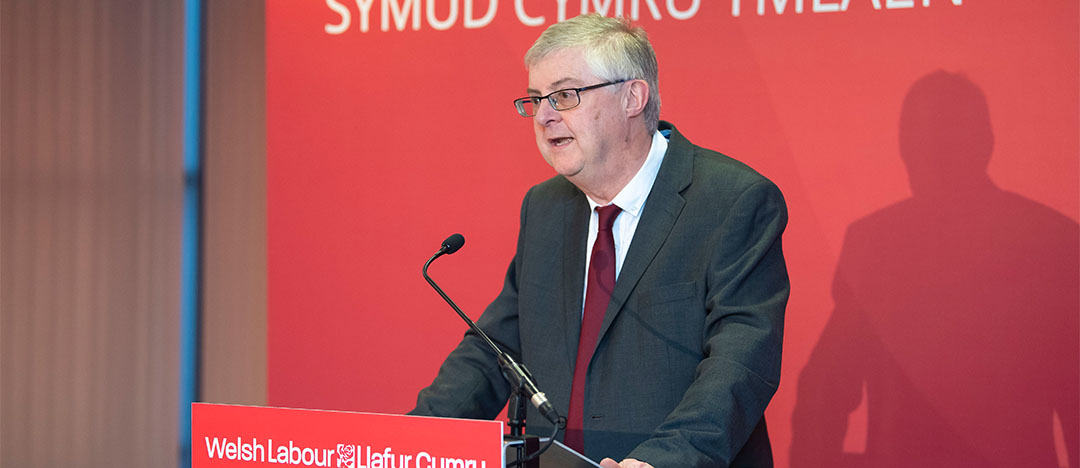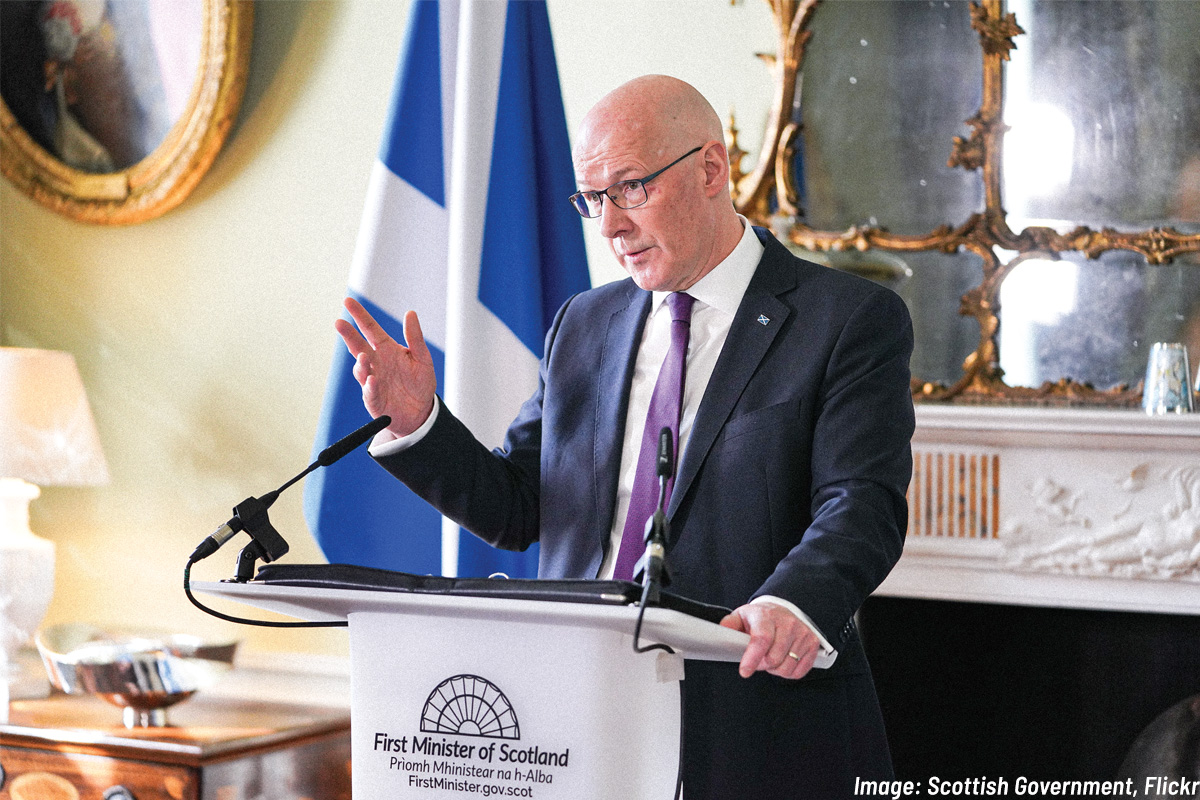Victory for the left-wing candidate in the Welsh Labour leadership contest shows the desire amongst grassroots members for genuine change. This means fighting for bold socialist policies.
On Thursday 6th December, Momentum backed candidate Mark Drakeford was elected leader of the Labour Party in Wales.
Drakeford – former Cabinet Secretary in the Carwyn Jones government and Assembly Member for Cardiff West – dominated election results, leaving Blairites Vaughan Gethin and Eluned Morgan trailing.
Drakeford’s success represents a fundamental shift to the left amongst ordinary Labour Party members over the past two years.
Drakeford has repeatedly expressed his support for Jeremy Corbyn, further strengthening the Labour leader’s hand. The new Welsh Labour leader’s victory follows that of left-winger Richard Leonard in the Scottish Labour leadership contest back in November 2017.
Work to be done
This recent election, however, highlights that there is still much work to be done. Turnout was exceptionally poor, with only 14,000 casting a ballot out of a potential 250,000 voters. This was especially the case amongst trade union affiliates. The Labour-led Senedd’s (Welsh Assembly) reluctance to challenge cuts and anti-worker policies in the past will certainly have alienated such workers over the years.
On top of this, Drakeford’s track record still leaves much to be desired. On the one hand, he has come forward as a strong supporter of nationalising the probation service in the UK, and he believes in implementing maternity packages for expectant mothers. But during his tenure as Minister for Health and Social Services and in his position as Cabinet Secretary for Finance, Drakeford oversaw brutal cuts to public services and healthcare, submitting to Welsh Labour’s austerity policies.
One of Drakeford’s main promises has been to provide a 50-50 gender split in his cabinet. But this tokenistic gesture will do nothing to combat the problems facing the working class in Wales or reverse the impact of the cuts enacted by the Welsh government over the last decade.
According to a recent report published by the Welsh NHS Confederation, by 2031 the NHS in Wales will be looking at a £1.4-£2.5 billion funding gap.
In addition, the JFR Analysis Unit recently discovered that nearly one-third of people living in Wales reside in poverty. his is higher than in England, Scotland or Northern Ireland. Meanwhile, according to the Guardian, post-industrial towns such as Pontypool are home to areas where 75% of all children under the age of four are being raised in poverty.
The impact of the 2008 slump was so deep that if you told any worker in Wales that they’re living through an economic “recovery”, they’d think you’re having a laugh.

Fight for socialism
Faced with this situation, Drakeford needs to offer a bold economic transformation that will fundamentally challenge this broken status quo. We need genuine fighters committed to clear socialist policies. Only in this way can the new Welsh Labour leader meet the demands of workers and provide a real alternative to the previous Welsh government.
Despite his resounding election victory, Drakeford has felt the need to compromise and surround himself with the very Blairites he defeated, along with a host of other establishment figures. For example, he has allowed Liberal Democrat Kirsty Williams to retain her position as Education Secretary. Simply put, there has not been much of a shake up compared to the previous government.
Nevertheless, Drakeford’s success clearly reflects a wider desire within the Labour Party for change. Going forward, Welsh Labour, if it is to really represent the interests of ordinary workers, needs to adopt bold socialist policies.
Already, a number of Welsh CLPs have passed motions in support of the restoration of Clause IV. This would place the key levers of the economy under workers’ control. Other demands should include: the right for the immediate recall of elected Assembly Members; free education, with full living grants for all students; and an end to austerity, with a reversal of those cuts already made.
This election certainly indicates a shift to the left. It marks the beginning of a new chapter, demonstrating what the Labour Party – not just in Wales, but throughout Britain – is capable of.
It’s time to put an end to Blairite subservience to Tory policies. We need to confront austerity head-on and turn the Labour Party into a weapon in the fight for socialism.






